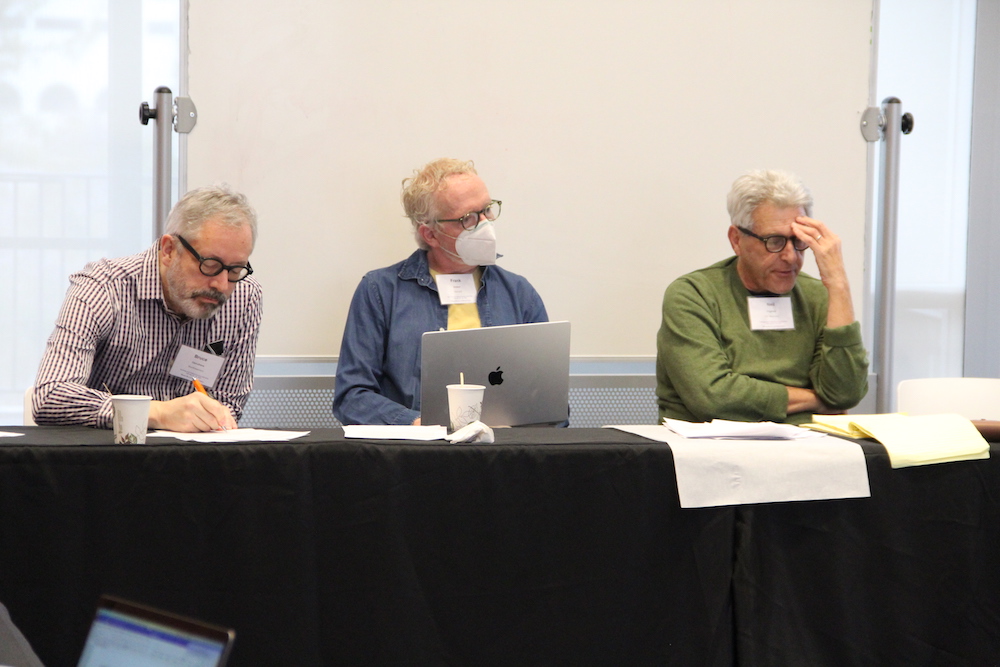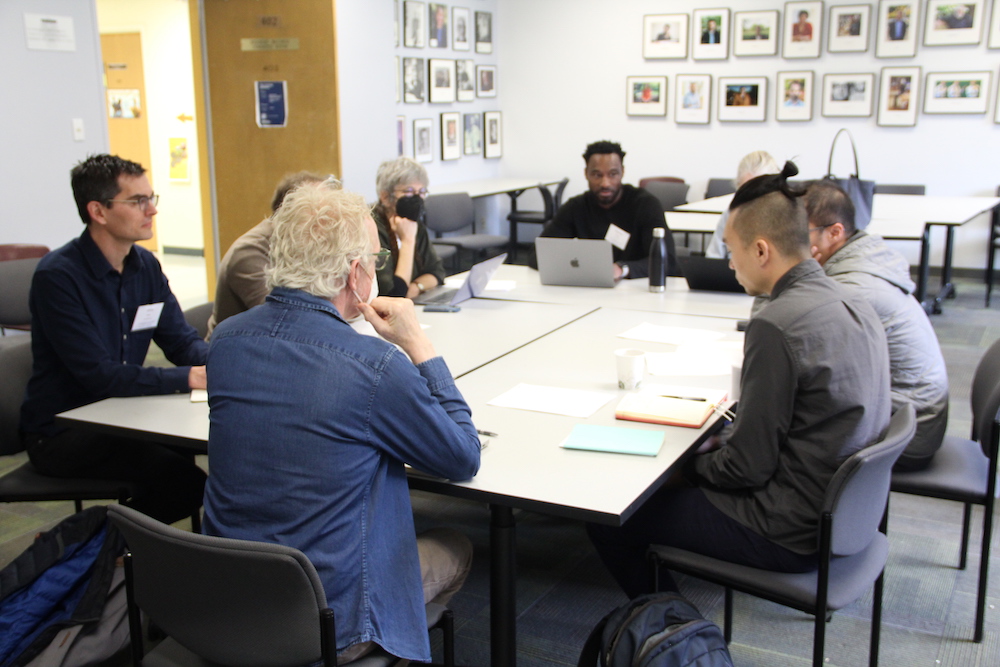The Berkeley Economy and Society Initiative (BESI) is leading an initiative focused on bringing together scholars from the fields of political economy and sociology. In 2023, BESI hosted a pair of conferences with a goal to explore whether and how these two vital academic communities could be bridged to promote new, cross-disciplinary approaches to addressing global challenges.

The initiative kicked off with a conference in February, when 32 faculty participants and four Berkeley graduate students gathered for a day of conversation at UC Berkeley’s Social Science Matrix. The conference’s leaders were Bruce Carruthers, John D. MacArthur Professor at Northwestern University; Neil Fligstein, Class of 1939 Professor at UC Berkeley; and Frank Dobbin, Henry Ford II Professor of the Social Sciences at Harvard University.
Over the course of the conference, participants explored such questions as: what theoretical approaches unite the fields of sociology and political economy? What are the exciting big questions that we should be tackling but are not? And, what major social problems might bring together scholars with different subfield commitments by utilizing a political economy perspective?
“The idea was to try to bring together people in sociology who could be seen as doing political economy, and to get them to discuss what they thought that meant, what a new political economy would look like, and what sociologists’ contributions to that political economy would be,” Fligstein explains. “The subject of the February meeting was to ask, is there consensus in the room? What would we like to do going forward? And how would we organize ourselves? The goal was to see what we had in common, and what kinds of things we could do together.”

Part of the conversation centered on how the fields of political economy and sociology could converge through methodological approaches. For example, one of the sessions addressed the question, “what data initiatives would make sense to create collective goods and push forward the idea that we have a collective project going?”
Another session focused on pedagogy, led by the question, “how might we impact the teaching of political economy and sociology to undergraduates and graduate students?”
Bridging sociology with political economy is important, Fligstein says, because the fields of economics and political science have traditionally had blind spots in how they understand and interpret the world. “Sociology is concerned with power, including who has social power and who doesn’t,” Fligstein says. “That’s very fundamental in sociology. But economists in particular have realized that they don’t have any conception of power. For example, in markets, economists talk about market power, but they don’t talk about it very in a systematic way. One of the things sociology brings to this conversation is that we believe things are mostly about power — who has stuff and who doesn’t, and who gets to tell everybody else what to do. That’s a kind of healthy corrective to both what economics generally thinks.”
Sociology can also bring a perspective on culture, which is not typically looked at in economics or political science. “Neither economics nor political science is very good about culture,” Fligstein says. “Sociologists understand that certain groups are always going to be less powerful, and hence are discriminated against. We think that’s part of the way the structure of society operates. And so we are really good about things like gender, race, religion, ethnicity, and immigration, because we see that people who are less powerful, who are being impacted by cultural meanings that are being pushed onto them, are likely to be victims in society, and are likely to be the ones that society sets up barriers against.”
Building on the outcomes of the first conference, a second conference was convened in June that brought together a group of 16 scholars, all in the early stages of their careers, to lead the initiative into its next phase. “The idea was that younger scholars have a career ahead of them,” Fligstein says. “Out of the conference has come a steering group of people who are going to try to organize themselves to coordinate what might happen next.”
Fligstein says the time is right to bring together sociology with political economy because the field of economics is seeking new approaches, given the failure of neoliberalism to produce the economic growth that was once promised.
As outcomes of the conferences, scholars from the two domains are going to work together to develop undergraduate- and graduate-level curricula and teaching materials, such as a textbook or handbook. They also seek to build bridges to policymakers to ensure that they are viewing government and economics through a sociological lens. “People are interested in connecting to policy communities, and engaging around topics like private equity, community organizing, climate change, and development.”

